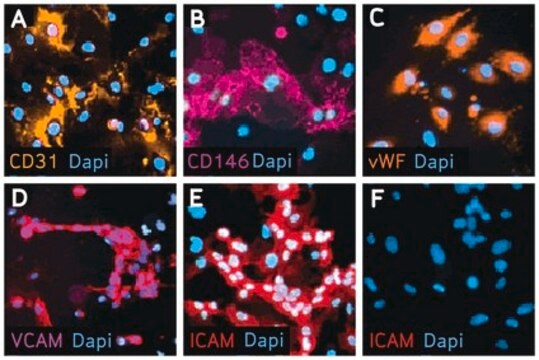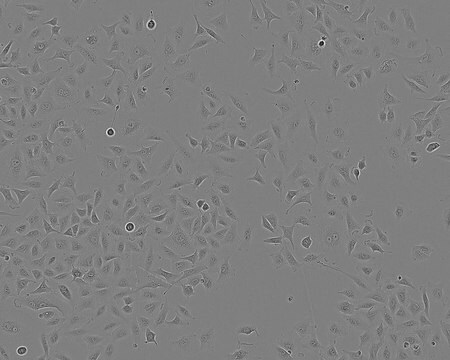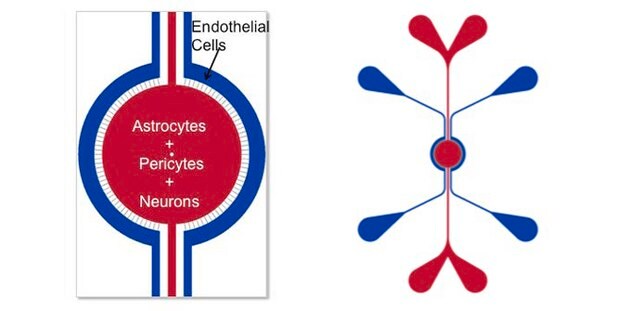b.End5
NOTE: Both the cell line and DNA from the cell line may be available for this product. Please choose -1VL or VIAL for cells, or -DNA-5UG for DNA, 96091930, mouse brain, Endothelial-like
Synonym(e):
Brain-derived Endothelial 5 Cells, bEnd3 Cells, bEnd5 Cells
About This Item
Empfohlene Produkte
Biologische Quelle
mouse brain
Verpackung
tube of 5 μg 96091930-DNA-5UG
pkg of vial of cells 96091930-1VL
Wachstumsmodus
Adherent
Karyotyp
Not specified
Morphologie
Endothelial-like
Produkte
Not specified
Rezeptoren
Not specified
Methode(n)
cell culture | mammalian: suitable
Versandbedingung
dry ice
Lagertemp.
−196°C
Ursprung der Zelllinie
Beschreibung der Zelllinie
Anwendung
Nährmedium
Subkultur-Routine
Sonstige Hinweise
Hier finden Sie alle aktuellen Versionen:
Analysenzertifikate (COA)
It looks like we've run into a problem, but you can still download Certificates of Analysis from our Dokumente section.
Wenn Sie Hilfe benötigen, wenden Sie sich bitte an Kundensupport
Besitzen Sie dieses Produkt bereits?
In der Dokumentenbibliothek finden Sie die Dokumentation zu den Produkten, die Sie kürzlich erworben haben.
Unser Team von Wissenschaftlern verfügt über Erfahrung in allen Forschungsbereichen einschließlich Life Science, Materialwissenschaften, chemischer Synthese, Chromatographie, Analytik und vielen mehr..
Setzen Sie sich mit dem technischen Dienst in Verbindung.




